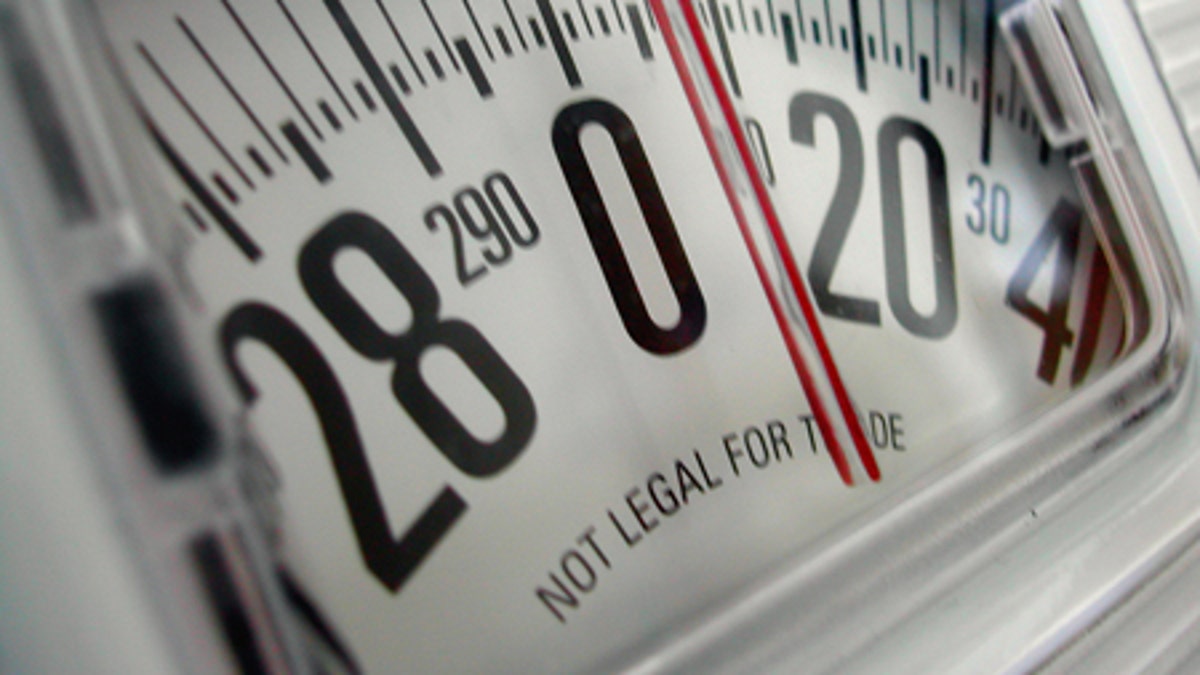
The KE diet, also known as the feeding tube diet, has been a topic of controversy since it was introduced in the U.S. in 2011. Now one North Dakota doctor said his research proves the diet could be the answer for patients suffering from type 2 diabetes.
In the Ketogenic Enteral Nutrition diet (KE), a feeding tube with an electric pump is inserted through the nose and into the esophagus. A nutritional solution is administered through the tube 24 hours a day, allowing the patient to intake about 800 calories daily. While on the diet, individuals cannot eat anything and may only drink water, tea or black coffee. This process lasts a number of days under doctor supervision.
Dr. Spencer Berry, medical director of Medical Weight Loss Specialists in Fargo, North Dakota, told FoxNews.com that the diet safely produces dramatic weight loss in a very short period of time.
“The KE diet provides only proteins, fats and micronutrients and no carbohydrates or sugars, so your body goes into a state of deep nutritional ketosis and burns its own fat,” he said.
Berry recently conducted a study of 17 patients suffering from type 2 diabetes or in a pre-diabetic state to test his theory that the KE diet could combat the disease.
“Weight loss is known to be the most effective way to increase insulin sensitivity and thus decrease the amount of insulin the body requires,” he said. “Unraveling this vicious cycle can be very difficult. This is where the KE diet has tremendous value.”
Berry and his team put patients on the KE diet for 10 days. By the end of the trial, patients lost between 6 and 6.5 percent of their body weight.
In addition to weight loss, data showed all patients had improved blood sugar control and were able to eliminate taking diabetic medications or drastically reduce their dosage.
“Patients greatly reduce their need for insulin and may be able to discontinue it all together,” he said. “The study began in the spring of 2014 and is ongoing. We continue to gather data.”
Preliminary findings were presented at the national meeting of the American Society of Bariatric Physicians (ASBP) in Austin, Texas.
Although the study results were positive, not everyone in the medical community is convinced the diet can be a long-term solution for the nearly 30 million Americans suffering from diabetes.
Dr. Maria Pena, director of the Center for Weight Management at North Shore-LIJ's Syosset Hospital in Syosset, New York told FoxNews.com that even though radical diets can improve metabolic profiles like cholesterol levels and diabetes, maintaining results with this method is unrealistic.
“In general, all diets that significantly reduce caloric intake to about less than 800 calories per day can be effective in promoting rapid weight loss,” Pena said. “However, the problem lies in making these changes sustainable and the answer is a resounding ‘no.”
Pena said the results of diets like the KE diet are short-lived, and patients tend to regain the weight just as quickly as they lost it.
“To receive nutrition via a feeding tube is not a realistic long-term method of nutrition. Plus using a feeding tube for a prolonged period of time can increase a person’s risk of infections,” she said.
Berry said he strongly believes that in order for the KE diet to work for diabetes patients, it needs to be utilized properly.
“When used appropriately as a nutritional bridge in an ongoing treatment regimen and weight loss plan with follow up and continuity of care, the KE diet represents an innovative and very effective approach to a very serious health issue,” he said.
